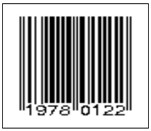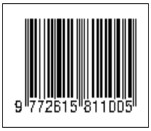IMPLIKASI YURIDIS REMISI BAGI NARAPIDANA KASUS TINDAK PIDANA KORUPSI (STUDI KASUS DI LEMBAGA PEMASYARAKATAN KELAS IIA MATARAM)
Abstract
Keywords
Full Text:
PDFReferences
Andi Hamzah dan S.Rahayu. (1983). Suatu Tinjauan Ringkas Sistem Pemidanaan di Indonesia, Akademika Pressindo Kencana, Jakarta.
Bambang Sunggono dan Aries Harianto. (1994). Bantuan Hukum dan Hak Asasi Manusia, Mandar Maju, Bandung.
Barda Nawawi Arief. (2005).Bunga Rampai Kebijakan Hukum Pidana, Citra Aditya Bakti, Bandung.
Chairul Huda. (2006), Tiada Pidana Tanpa Kesalahan Menuju Kepada Tiada Pertang gungjawaban Pidana Tanpa Kesalahan, Kencana Prenada Media, Jakarta.
Darji Darmodiharjo & Shidarta. (1995), Pokok-Pokok Filsafat Hukum, Apa dan Bagaimana Filsafat Hukum Indonesia, P.T. Gramedia Pustaka Utama, Jakarta.
Evi Hartanti. 2005. Tindak Pidana Korupsi , Sinar Grafika, Jakarta. L.J. van Apeldoorn (2000), Pengantar Ilmu hukum, P.T. Pradnya Paramita, Jakarta.
Kamus Bahasa Indonesia, Pusat Bahasa Departemen Pendidikan Nasional,Jakarta.
Keputusan Presiden Republik Indonesia Nomor 174 Tahun 1999 Tentang Remisi.
https://lpnkarangintan.kemenkumham.go.id diakses pada tanggal 05 februari 2023.
https://cerdika.com/remisi/Mengapa_Remisi_Itu_Penting diakses tanggal 07 februari 2023.
http://bobbymuscar6.blogspot.com diakses nload 08 februari 2023.
https://peraturanpedia.id diakses pada tanggal 27 juli 2023.
https://lpppkp.kemenkumham.go.id/ diakses pada tanggal 27 juli 2023.
https://palembang.tribunnews.com/ diakses pada Tanggal 29 juli 2023.
Moeljatno. (1985). Membangun Hukum Pidana, Bina Aksara, Jakarta.
Peraturan Menteri Hukum dan Hak Asasi Manusia Republik Indonesia Nomor 7 Tahun 2022 Tentang Syarat dan Tata Cara Pemberian Remisi, Asimiliasi,Cuti Mengunjungi Keluarga, Pembebasan Bersayarat, Cuti Menjelang Bebas, dan Cuti Bersyarat.
Peraturan Pemerintah Republik Indonesia Nomor 99 Tahun 2012 Syarat dan Tata Cara Pelaksanaan Hak Warga Binaan Pemasyarakatan.
Sudikno Mertokusumo. (2003). Mengenal Hukum. Yogyakarta: Liberty Yogyakarta.
Sudarto. (1981). Kapita Selekta Hukum Pidana, Alumni, Bandung.
Undang - Undang Dasar Negara Republik Indonesia tahun 1945.
Undang - Undang Republik Indonesia Nomor 20 Tahun 2001 tentang Perubahan Atas Undang – Undang Republik Indonesia Nomor 31 Tahun 1999 tentang Pemberantasan Tindak Pidana Korupsi.
Undang – Undang Republik Indonesia Nomor 22 Tahun 2022 Tentang Pemasyarakatan.
DOI: https://doi.org/10.35327/gara.v17i4.647
Refbacks
- There are currently no refbacks.
Copyright (c) 2023 GANEC SWARA

This work is licensed under a Creative Commons Attribution-ShareAlike 4.0 International License.
TERINDEKS
|
_______________________________
Ganec Swara
Published by UNMAS Denpasar K. Mataram |
Email: ganecswara@gmail com; aminullahmtk@gmail.com

This work is licensed under a Creative Commons Attribution-ShareAlike 4.0 International License.











